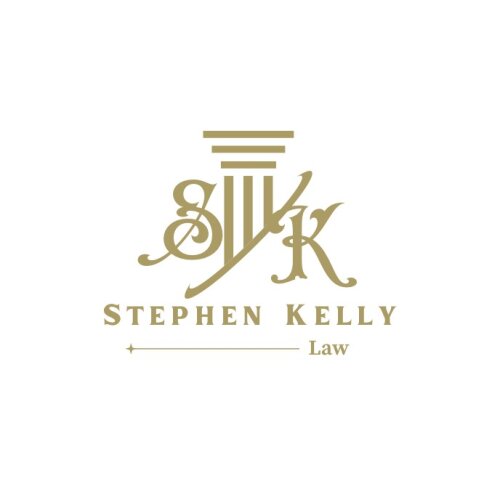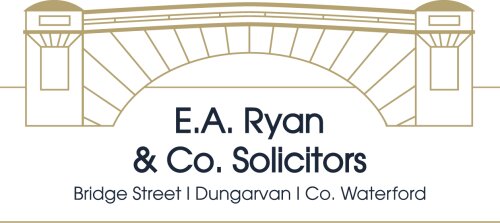Best Mortgage Lawyers in Ireland
Share your needs with us, get contacted by law firms.
Free. Takes 2 min.
Free Guide to Hiring a Real Estate Lawyer
Or refine your search by selecting a city:
List of the best lawyers in Ireland
About Mortgage Law in Ireland
Mortgage law in Ireland governs the relationships and legal obligations between borrowers and lenders in the context of real estate financing. A mortgage is essentially a secured loan where the borrower pledges their property as security to the lender. The legal framework ensures both parties’ rights and responsibilities are maintained, aiming to facilitate transparent and fair lending practices. Key aspects include the registration of charges, contractual terms, and foreclosure rules.
Why You May Need a Lawyer
Legal assistance may be necessary at various stages of the mortgage process in Ireland. Common situations where you might require a lawyer include:
- Reviewing mortgage contracts to ensure terms are clear and fair.
- Addressing disputes with lenders regarding mortgage terms or payments.
- Assisting with the legal aspects of buying or selling a mortgaged property.
- Ensuring compliance with regulatory requirements when taking out a mortgage.
- Handling foreclosure proceedings or negotiating restructuring options.
- Dealing with issues related to the rights of co-mortgagors or guarantors.
Local Laws Overview
Several key legal frameworks govern mortgages in Ireland. These include:
- The Conveyancing Act 1881 and subsequent amendments, which outline foundational mortgage practices.
- The Consumer Credit Act 1995, which regulates transparency and fairness in mortgage-related transactions.
- The Central Bank of Ireland provides guidelines for Fair Treatment of Mortgage Arrears.
- The Land and Conveyancing Law Reform Act 2009, which governs the registration of mortgages and foreclosures.
These laws ensure that mortgage agreements are legally binding, transparent, and enforceable, helping protect the interests of both lenders and borrowers.
Frequently Asked Questions
1. What is the typical process of obtaining a mortgage in Ireland?
The process involves assessing your financial status, applying for a mortgage, getting approval, and finalizing the mortgage contract. It usually ends with the conveyancing stage, where solicitors handle the legal transfer of property ownership.
2. Are variable or fixed-rate mortgages more common in Ireland?
Both are available, but variable-rate mortgages are traditionally more common. However, fixed-rate mortgages have gained popularity due to interest rate stability.
3. What happens if I fall behind on my mortgage payments?
If you miss payments, it is crucial to contact your lender immediately. Options may include restructuring loans or temporary payment holidays. Persistent defaults may lead to foreclosure.
4. What is a mortgage arrears resolution process?
The resolution process involves reaching an agreement with your lender to manage missed payments. Solutions may include extending the mortgage term or altering payment frequency.
5. Can non-residents get mortgages in Ireland?
Yes, non-residents can obtain mortgages in Ireland, though the process may be more complex and typically involves higher deposit requirements.
6. How long does the mortgage approval process take in Ireland?
Typically, the process can take between a few weeks to several months, depending on your financial conditions and the lender's in-house procedure.
7. Is a solicitor necessary when securing a mortgage?
Yes, using a solicitor is highly recommended to ensure that the property's title is clear and the contract terms are legally sound and in your best interest.
8. What fees should I expect when taking a mortgage in Ireland?
Common fees include valuation fees, legal fees, lender's fees, and potentially break fees if you are exiting a fixed-rate mortgage early.
9. Can I transfer my mortgage to another property?
Some lenders offer 'porting' features, allowing you to transfer your existing mortgage to a new property, subject to criteria and approval.
10. What protection is there if my lender goes bankrupt?
Your mortgage contract remains legally valid. Typically, the loan would be transferred to another lender or an institution appointed by the government.
Additional Resources
For more assistance, consider consulting the following resources:
- Citizens Information Board: Offers comprehensive guidance on housing and mortgage issues.
- Competition and Consumer Protection Commission (CCPC): Provides consumer rights information, including mortgage comparisons and advice.
- Central Bank of Ireland: Offers regulations and guidelines for mortgage lending and treatment of arrears.
- Law Society of Ireland: Provides listings of solicitors experienced in property law and conveyancing.
Next Steps
If you need legal assistance with a mortgage issue, consider these steps:
- Gather all relevant documents related to your mortgage, including contracts, correspondence with lenders, and payment records.
- Research and contact a solicitor who specializes in property law for a consultation to discuss your particular situation.
- Prepare a list of questions or concerns you might have to optimize your consultation time.
- Consider engaging a solicitor to handle complex transactions, negotiations, or if you’re facing legal proceedings.
Legal guidance can significantly streamline the process and help protect your interests in financial transactions involving your home.
Lawzana helps you find the best lawyers and law firms in Ireland through a curated and pre-screened list of qualified legal professionals. Our platform offers rankings and detailed profiles of attorneys and law firms, allowing you to compare based on practice areas, including Mortgage, experience, and client feedback.
Each profile includes a description of the firm's areas of practice, client reviews, team members and partners, year of establishment, spoken languages, office locations, contact information, social media presence, and any published articles or resources. Most firms on our platform speak English and are experienced in both local and international legal matters.
Get a quote from top-rated law firms in Ireland — quickly, securely, and without unnecessary hassle.
Disclaimer:
The information provided on this page is for general informational purposes only and does not constitute legal advice. While we strive to ensure the accuracy and relevance of the content, legal information may change over time, and interpretations of the law can vary. You should always consult with a qualified legal professional for advice specific to your situation.
We disclaim all liability for actions taken or not taken based on the content of this page. If you believe any information is incorrect or outdated, please contact us, and we will review and update it where appropriate.
Browse mortgage law firms by city in Ireland
Refine your search by selecting a city.












